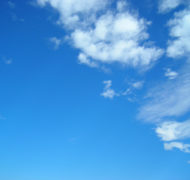Nothing Doing
Blog / Produced by The High Calling
I used to assume that people who lived in prehistoric times had it rough. Bad housing, no toothbrushes, scratchy clothes, and no protection from wild animals or marauding thieves. I imagined a person from the ancient world might work all day just to gather a few edible roots and maybe kill a weasel to eat, only to be killed himself by a saber-toothed cat or someone who coveted his campsite and weasel dinner.
So I was surprised to learn that anthropologists believe ancient people lived lives of relative leisure. The average hunter-gatherer worked about four hours a day to secure food and shelter, then spent the rest of his time swimming, telling stories, singing, playing games with his children, and lazily staring off into space.
Sometimes I tell stories or swim or play with my children, but that’s once or twice a week—in a good week. As for lazily staring off into space, I’ve had no experience with that whatsoever, at least not since I’ve been an adult.
Like many people in the modern world, I am a busy person. My life is a never-ending flow of tasks and duties. And while I go about the business of my day, I am constantly bombarded with noise, advertising, news, music, and conversation. A restaurant I frequent has the sports page tacked to the wall above the urinal in the men’s room. That way even the few humble moments spent at the urinal can be put to use.
I’m embarrassed to admit this, but I rather like glancing at the headlines above the urinal and thought it was a pretty good idea the first time I saw it.
But something happened on a recent Saturday that has caused me to rethink some things. On this particular Saturday, for one hour, I did nothing at all.
I was doing my Saturday work - did I mention that I have Saturday work? It’s the work that I can’t do during the week because I’m busy with my professional work. On this particular Saturday I worked on the grounds at our church with some men, then came home to work in my yard. I carried about 80 gallons of crushed granite to our backyard. My wife and I are laying pavers to create a soothing and beautiful patio, where we can relax, sip cold drinks, and chat with friends around a barbeque grill.
We don’t actually do those things, of course. Our weekends are far too busy for such leisure. Perhaps the people who buy our home one day will enjoy this space.
By the end of the day I was bone tired. I had removed the rear seat of our minivan so I could haul the granite. I collapsed onto the seat, leaned my head back, and stared upward.
I could have watched TV. I could have listened to music on my iPod. I could have read a book. And I would have gladly done those things, but I was tired and nothing was within easy reach. So I stared at the sky. I looked with wonder and awe at the particular shade of blue that is our sky. I stared at a few clouds. I rubbed my thumb back and forth over the leather of the seat because I liked the way it felt. A mosquito bit me. I blew it off my arm and scratched the bump it left behind.
And this is important: I really didn’t think about much of anything.
I was simply
living
in that hour.
That hour was not like unto other hours. During that hour, time was without form and void, and blueness was over the face of the earth. The Spirit of God moved across the expanse of my emptiness. And it was good.
This part I think may be hard for some to understand. I didn’t pray. I didn’t feel the need to pray. For that hour I’m not sure I could have explained how praying is different from living so fully in the moment. And I don’t feel inclined to slap a label on that time so it can fit nicely into a spiritual category.
I tell you this: It was amazing.
I could only tolerate that kind of radical living for one hour. Then I became restless and went inside. My instinct toward busy living has great inertia, and I fear it may take many such hours to nudge me off course.
But the first blow has been struck. I tell you I am a changed man.
by Gordon Atkinson.
Photo by Fabio Marini. Used by permission, via Flickr.
Originally published in a longer form at the Christian Century.





